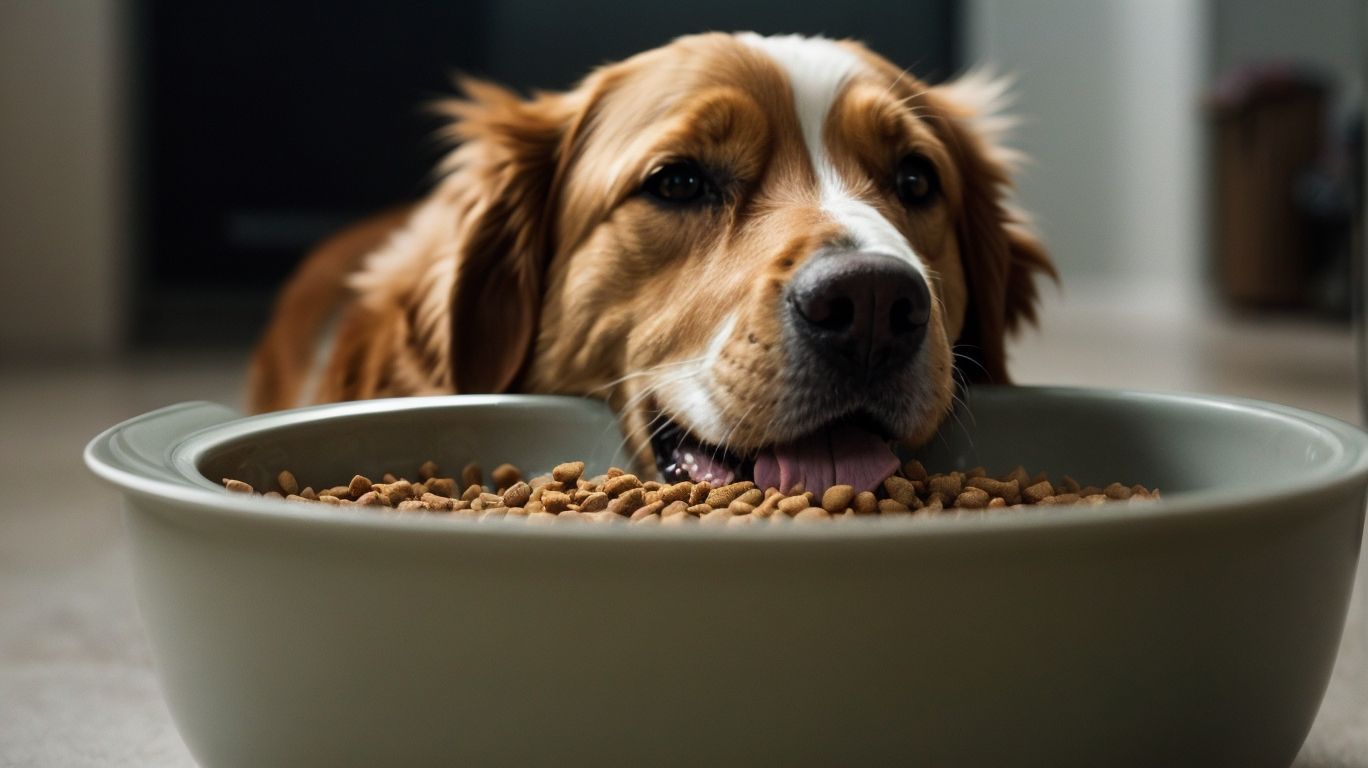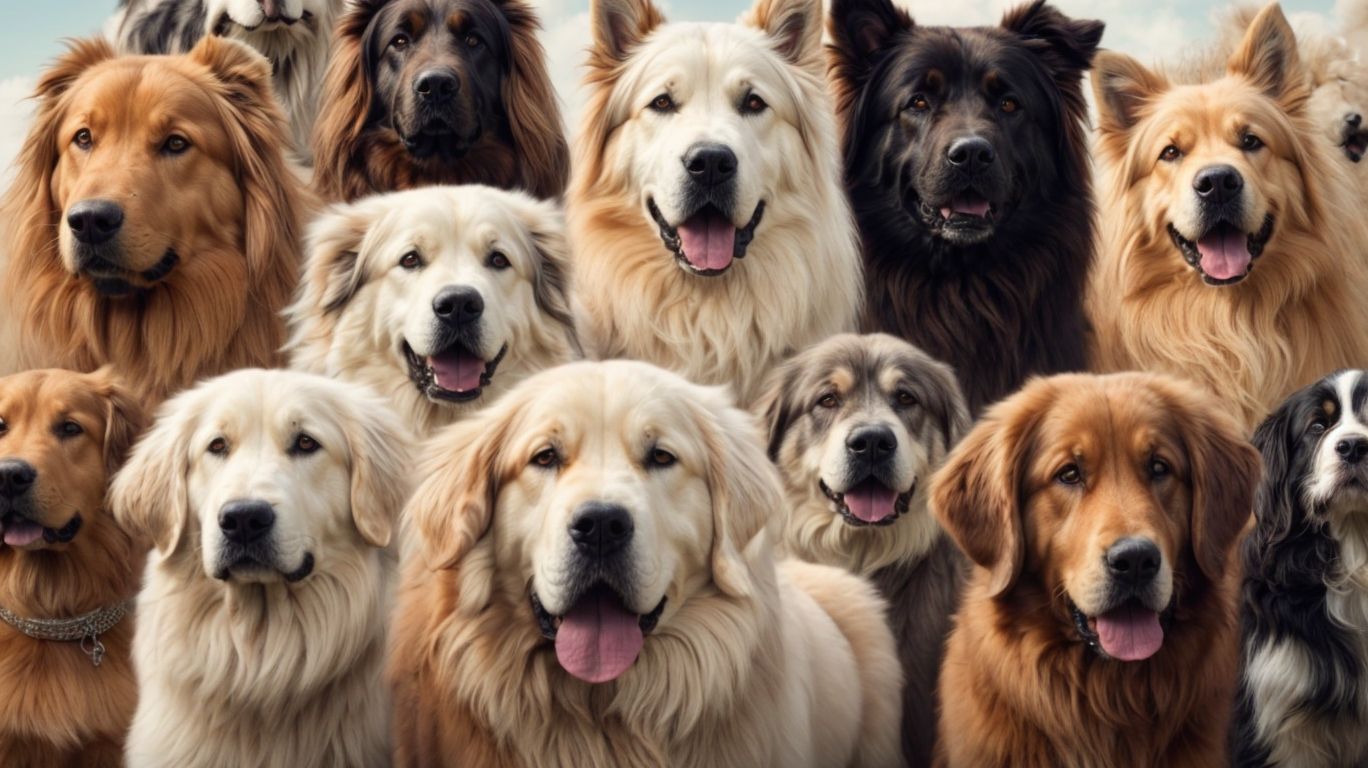
The Role of Hydrolyzed Protein Diets in Managing Dog Food Allergies
Understanding the Role of Hydrolyzed Protein Diets in Managing Dog Food Allergies
If you are a pet owner, you understand the importance of providing your furry companion with the best nutrition possible. For some dogs, food allergies can pose a significant challenge. This is where hydrolyzed protein diets come into play. In this comprehensive guide, we will delve into the world of hydrolyzed protein diets, exploring what they are, how they work, and why they are often recommended for dogs with food allergies. We will also discuss the symptoms of dog food allergies, common allergens in dog food, and the potential side effects of feeding your dog a hydrolyzed protein diet. We will provide valuable insights on how to transition your dog to a hydrolyzed protein diet, as well as explore the best brands available in the market. We will touch upon alternative options for dogs with food allergies, such as limited ingredient diets, novel protein diets, and homemade diets. So, if you are seeking to gain a deeper understanding of how hydrolyzed protein diets can benefit your furry friend, you’ve come to the right place. Let’s embark on this educational journey together and ensure that your dog receives the optimal nutrition it deserves.
What Are Hydrolyzed Protein Diets?
Hydrolyzed protein diets are specially formulated pet diets designed to address food allergies and sensitivities in dogs, promoting pet health and overall wellness.
These diets contain protein that has been broken down into smaller, more easily digestible fragments, reducing the likelihood of triggering allergic reactions in pets with sensitivities. By minimizing the allergenic potential, hydrolyzed protein diets play a crucial role in managing pet allergies and promoting hypoallergenic nutrition, supporting overall wellbeing.
They provide essential nutrients while minimizing the risk of adverse reactions, making them a valuable option for pets with specific dietary requirements.
How Do Hydrolyzed Protein Diets Work?
Hydrolyzed protein diets work by breaking down protein sources into smaller components, making them less likely to trigger allergic reactions in pets, thereby managing food sensitivities and promoting pet health.
The process of hydrolysis involves enzymatic breakdown of proteins into smaller peptides, reducing their allergenic potential. This makes them easier for pets to digest, alleviating the symptoms associated with food allergies. These diets provide essential amino acids and nutrients, supporting overall pet wellness. By offering a hypoallergenic nutrition option, hydrolyzed protein diets play a crucial role in addressing pet allergies, mitigating adverse reactions, and promoting a healthier and more comfortable life for pets.
What Are Dog Food Allergies?
Dog food allergies refer to adverse reactions in dogs resulting from specific ingredients in their diets, impacting their overall pet health and necessitating dietary management.
These allergic reactions can manifest as itching, gastrointestinal issues, skin problems, and even respiratory distress in some cases. Consequently, managing these allergies through appropriate pet diets becomes paramount in ensuring the well-being of our canine companions.
By identifying and eliminating allergens from their meals, pet owners can significantly alleviate their dogs’ discomfort and enhance their quality of life. Understanding the significance of dietary management in addressing pet allergies empowers owners to make informed choices for their furry friends, promoting a happier and healthier lifestyle.
What Are The Symptoms Of Dog Food Allergies?
The symptoms of dog food allergies may manifest as skin conditions such as itching or hives, digestive issues like vomiting or diarrhea, and general discomfort, affecting the overall pet wellness.
These symptoms can lead to chronic skin irritation, hair loss, and ear infections, significantly impacting the pet’s quality of life. Persistent digestive problems may result in weight loss, nutritional deficiencies, and a weakened immune system. Recognizing these signs early is crucial for addressing the allergy, which may involve switching to hypoallergenic food, conducting elimination diets, and consulting a veterinarian for proper diagnosis and treatment.
What Are The Most Common Allergens In Dog Food?
The most common allergens in dog food often include specific protein sources such as beef, chicken, and dairy, leading to food intolerances and adverse effects on pet health.
These protein sources can cause adverse reactions in some dogs, leading to symptoms such as itching, digestive issues, and skin irritations. In managing and avoiding these common allergens, pet owners can opt for dog foods with alternative protein sources like fish, lamb, or turkey. Carefully reading the ingredient labels and gradually introducing new foods can help identify and manage potential allergens. Consulting with a veterinarian is also crucial for developing a suitable diet plan for dogs with food intolerances.
Why Are Hydrolyzed Protein Diets Recommended For Dogs With Food Allergies?
Hydrolyzed protein diets are recommended for dogs with food allergies due to their hypoallergenic nature and their role in managing allergic reactions, promoting pet health and wellness.
By breaking down the protein molecules into smaller components, hydrolyzed protein diets make it easier for the dog’s digestive system to process, reducing the likelihood of triggering an allergic response. These diets help alleviate symptoms such as itching, skin irritations, and gastrointestinal issues.
The hydrolyzed protein’s low allergenic potential and high digestibility play a crucial role in supporting overall pet health and wellness, ensuring that dogs with food allergies can enjoy a better quality of life.
What Makes Hydrolyzed Protein Diets Different From Regular Dog Food?
Hydrolyzed protein diets differ from regular dog food by undergoing a process that breaks down proteins into smaller components, reducing the likelihood of triggering allergic reactions and providing specialized nutrition for pet diets and animal wellness.
This specialized process involves enzymatic hydrolysis, which breaks down the protein into smaller fragments, making it easier for the pet’s digestive system to process. As a result, the immune system is less likely to recognize these smaller protein fragments as allergens, minimizing allergic reactions.
Hydrolyzed protein diets are formulated with carefully selected nutrients to meet the unique dietary needs of pets with food sensitivities, promoting optimal health and overall well-being. As a result, they can be a valuable option for pet owners seeking to manage their furry friends’ specific nutritional requirements.
Are There Any Side Effects Of Feeding A Dog A Hydrolyzed Protein Diet?
Feeding a dog a hydrolyzed protein diet typically results in minimal side effects, as these diets are formulated to reduce the risk of allergic reactions and promote overall pet wellness.
It is important to note that, in rare cases, some dogs may experience digestive upset or mild gastrointestinal disturbances when transitioning to a hydrolyzed protein diet. It’s advisable to monitor your pet closely during the initial adjustment period, and if any persistent or concerning symptoms arise, consult with a veterinarian for guidance.
It’s crucial to ensure that the hydrolyzed protein diet meets all of your dog’s nutritional requirements, as deficiencies can potentially occur if the diet is not properly balanced.
How To Transition Your Dog To A Hydrolyzed Protein Diet?
Transitioning your dog to a hydrolyzed protein diet involves a gradual shift from their current food, ensuring a smooth adjustment to the new diet while managing any pet allergies or sensitivities.
It’s essential to start by consulting with your veterinarian to determine the most suitable hydrolyzed protein diet for your dog’s specific needs and health conditions. Once the new diet is selected, begin the transition by mixing small amounts of the new food with their current diet, gradually increasing the proportion of the new food over a period of 7-10 days. During this transition, closely monitor your dog for any signs of allergic reactions or digestive upset, and seek immediate veterinary attention if any concerns arise.
Providing plenty of fresh water and maintaining a consistent feeding schedule are key aspects of proper pet care during this diet transition process.
What Are The Best Brands Of Hydrolyzed Protein Diets For Dogs?
The best brands of hydrolyzed protein diets for dogs are those recognized for their quality, efficacy, and positive impact on pet wellness, reflecting the highest standards in the pet food industry.
They have been acclaimed for their commitment to using high-quality, easily digestible hydrolyzed proteins, which are essential for dogs with food sensitivities or allergies. These brands prioritize the overall well-being of pets and have gained trust within the pet food industry for their consistent delivery of nutritious and balanced diets.
Their products undergo rigorous testing to ensure safety and effectiveness, making them a preferred choice among pet owners and veterinarians alike.
Are There Any Alternatives To Hydrolyzed Protein Diets For Dogs With Food Allergies?
In addition to hydrolyzed protein diets, alternatives for dogs with food allergies include:
- Limited ingredient diets, formulated with a minimal number of carefully selected ingredients to reduce the risk of triggering allergic reactions.
- Novel protein diets, utilizing proteins that are not commonly found in commercial dog foods, such as duck, rabbit, or venison, to minimize the likelihood of allergic responses.
- Homemade diets, prepared under veterinary supervision, allow pet owners to control the specific ingredients and ensure that their dog’s dietary requirements are met, providing a customizable and tailored approach to managing food sensitivities.
Limited Ingredient Diets
Limited ingredient diets cater to dog food allergies by utilizing a simplified ingredient list, minimizing potential food intolerances and promoting overall pet wellness through specialized dietary management.
These specialized diets often contain a single protein source, such as lamb or salmon, and a limited number of easily digestible carbohydrates. This approach helps in identifying and eliminating specific allergens, providing relief to dogs with sensitivities. By reducing the number of ingredients, limited ingredient diets reduce the risk of triggering adverse reactions, leading to happier and healthier pets.
With the rise in awareness about food allergies in dogs, more pet owners are turning to these specialized diets as a solution to their furry friends’ wellness needs.
Novel Protein Diets
Novel protein diets offer unique protein sources that differ from commonly used meats, serving as an alternative for dogs with food allergies, and contributing to their pet health and holistic dietary management.
These diets often include proteins such as venison, duck, rabbit, or fish, which are less likely to have been previously encountered by the dog’s immune system, reducing the chance of triggering allergic reactions. The incorporation of these novel protein sources can provide a balanced and complete nutrition profile, addressing the specific dietary needs of dogs with allergies while supporting their overall health and wellness.
These diets can offer a welcome relief for pet owners who are seeking effective solutions for managing their dog’s food sensitivities and promoting their well-being.
Homemade Diets
Homemade diets cater to dog food allergies by allowing pet owners to control the ingredients and ensure specialized dietary management, contributing to pet wellness and promoting holistic pet care.
This personalized approach enables pet owners to carefully select and customize ingredients based on their dog’s specific allergies and sensitivities. By tailoring the diet to the pet’s needs, homemade diets can alleviate allergic reactions and digestive issues. The ability to monitor the quality of the ingredients used can lead to a higher standard of nutrition, thereby supporting the overall well-being of the dog.
It’s essential for pet owners to work closely with a veterinarian or pet nutritionist to ensure that the homemade diet meets all of the dog’s nutritional requirements while avoiding potential deficiencies.




No Comments